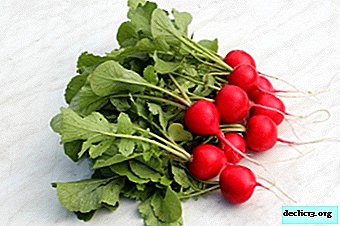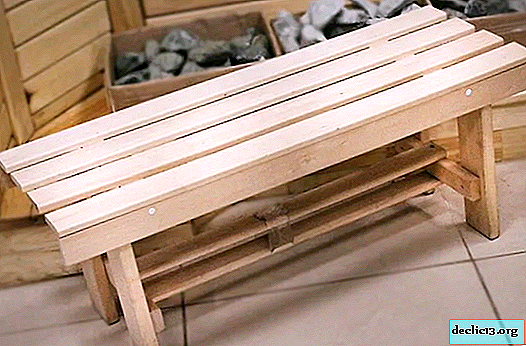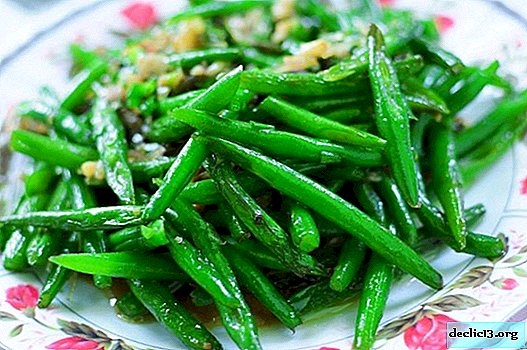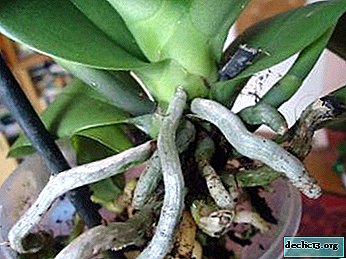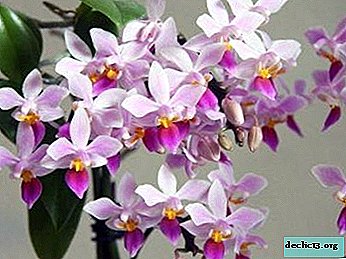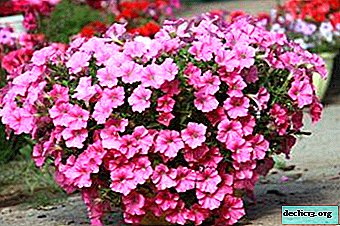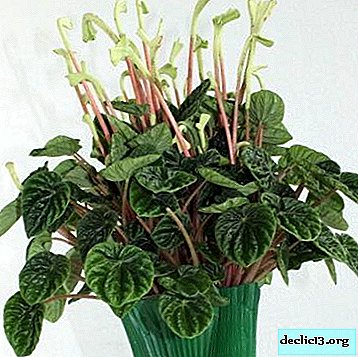Healthy verbena herb - medicinal properties, folk recipes, contraindications
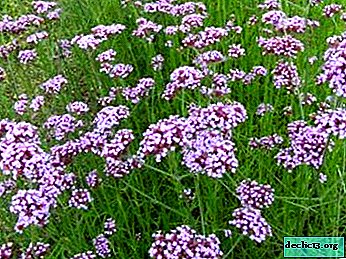
Verbena is distinguished by a large variety of species, among which there are plants with pronounced medicinal properties.
Verbena-based products help to overcome a wide range of health problems, prevent a number of diseases, and improve skin and hair condition.
The features of the application of this plant will be useful for everyone to know.
The article will talk in detail about the beneficial properties of this plant.
What is this plant?
Verbena is a herbaceous or shrub plant of the Verbena family. There are more than two hundred species, among which there are annual and perennial representatives.
External specifications vary by species. Verbena is able to reach a height of 80 - 100 centimeters. It has erect, creeping or open stems, smooth or covered with hairs. Leaves of a dark green hue, oval-elongated or serrated, can be dissected, pinnate, or whole.
Verbena flowers are small, about two centimeters in diameter. Collected in inflorescences of various colors: white, blue, blue, violet, purple, red, yellow.
America and Eurasia are considered the homeland of verbena.Features
The recognition of official medicine has only one type of plant - Verbena officinalis. In homeopathy and folk medicine, lemon verbena is also used. Most often, the aerial part of plants is used, and the roots are much less common. Verbena is highly regarded in cosmetology.
Chemical composition
Verbena officinalis contains the following components:
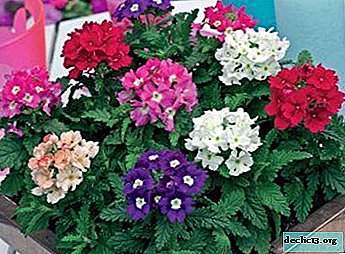 Verbenamine. It has anti-inflammatory, anti-allergic, antipyretic, antispasmodic and wound healing effects.
Verbenamine. It has anti-inflammatory, anti-allergic, antipyretic, antispasmodic and wound healing effects.- Carotene. It is converted to vitamin A, which regulates the metabolism, takes part in redox processes. Provides protein synthesis. Slows down the aging of the body.
- Vitamin C. It is a powerful antioxidant. It has an antitoxic effect. Promotes cell repair. Maintains the normal state of the liver and gastrointestinal tract.
- Silicic acid. Responsible for tissue regeneration and toxin elimination.
- Tannin - tannin. Protects cells from bacteria. It has an astringent effect.
- Bitterness. They have general strengthening properties. Participate in the regulation of digestive processes.
- Flavonoids. Neutralize free radicals and toxic substances. Improve capillary elasticity.
- Sitosterol. Prevents the formation of vascular plaques.
- Slime. Relieve inflammation. They have an enveloping effect.
- Glycosides. They have a disinfectant, sedative, diuretic, expectorant effect. Fighting germs. Contribute to the expansion of blood vessels.
- Essential oil. It has a bactericidal, anti-inflammatory, antiseptic and stimulating effect.
Medicinal use
Beneficial features
Verbena medicinal plant has a wide range of actions, among which:
- antioxidant;
- activating immunity;
- calming nervous system;
- diuretic;
- getting rid of germs;
- elimination of inflammation;
- lowering the temperature, removing heat;
- increased secretion of sweat and bile;
- increased vascular elasticity;
- strengthening the walls of veins and arteries;
- improved blood circulation;
- normalization of vascular tone;
- restoration of damaged capillaries;
- lower cholesterol;
- removal of muscle spasms;
- improved appetite and digestion;
- relief of expectoration;
- normalization of metabolism.
Essential oil is obtained from lemon verbena, which is an excellent antibacterial and antiseptic. With the ability to eliminate free radicals, it serves as a powerful antioxidant. Lemon verbena leaves are used in the fight against:
 a cold
a cold- bronchial asthma;
- Depression
- neurosis;
- digestive tract diseases.
Cosmetological properties of verbena:
- It relieves acne, eczema, chirii, boils.
- Helps smooth wrinkles.
- Improves skin firmness and elasticity.
- Eliminates sagging epidermis.
- Stimulates the release of melanin.
- Regulates sebum production.
- Strengthens and restores hair.
- Improves the growth of strands.
- Eliminates dandruff.
Indications for use
Verbena is used to treat almost all organs and systems.
Gastrointestinal tract:
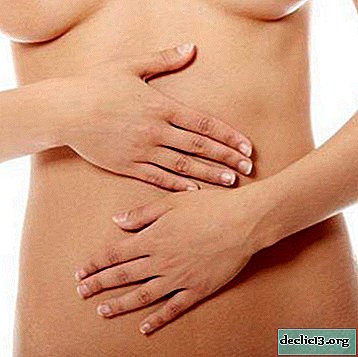 gastritis, accompanied by a reduced content of gastric juice;
gastritis, accompanied by a reduced content of gastric juice;- cholelithiasis;
- cholecystitis;
- constipation.
The cardiovascular system:
- hypotension;
- anemia;
 atherosclerosis;
atherosclerosis;- heart failure;
- angina pectoris;
- thrombophlebitis;
- thrombosis;
- varicose veins.
Nervous system:
 headache;
headache;- overwork;
- sleep disturbance;
- chronic fatigue syndrome.
The immune system: allergy.
Joints:
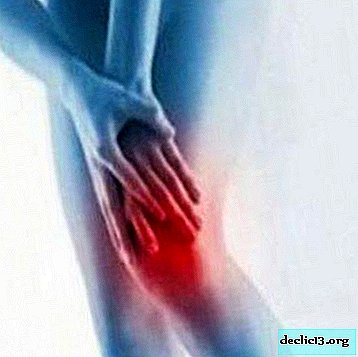 rheumatism;
rheumatism;- arthritis;
- gout;
- muscle aches.
Kidneys and urinary system:
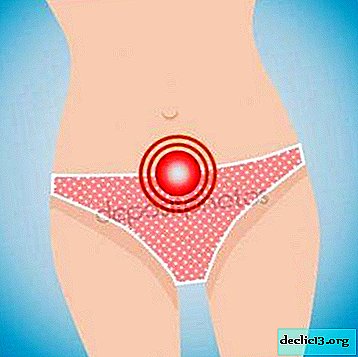 urolithiasis disease;
urolithiasis disease;- cystitis;
- urethritis.
Respiratory system:
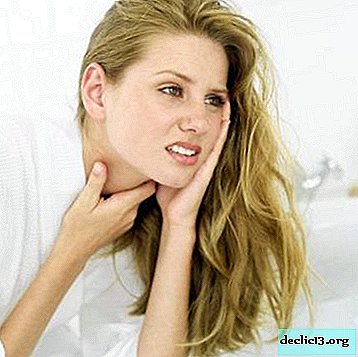 cold;
cold;- laryngitis;
- angina;
- bronchitis;
- bronchial asthma.
Leather:
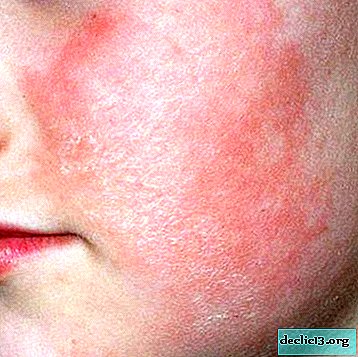 wounds;
wounds;- eczema;
- sores;
- scabies;
- psoriasis;
- furunculosis;
- rash.
Folk recipes
In folk medicine, all parts of the plant are used. Raw materials are collected during the flowering period. There are many ways to use verbena officinalis. The most common are infusions, decoctions, teas, drops and oil.
Essential oil is used internally as well as externally. This tool is part of lozenges, lozenges, cough tablets, throat sprays, ointments, eye drops. It is used for inhalation.
Decoction
Indications:
- respiratory tract diseases;
- as a diaphoretic.
Cooking tincture:
- A tablespoon of verbena herb pour a glass of boiling water.
- Keep 30 minutes in a water bath.
- Strain.
Application: Drink 50 ml of broth 3 times a day.
Medicinal infusion
Indications:
- migraine;
- nervous disorders;
- menstrual irregularities;
- pain during menstruation;
- atherosclerosis;
- thrombosis;
- diseases of the gastrointestinal tract;
- cold.
Cooking:
- 2 tablespoons of grass pour 250 ml of boiling water.
- Leave for an hour.
- Strain.
Application: Drink one glass twice a day. In order to prevent atherosclerosis and thrombosis, take an infusion of a tablespoon during the day every hour.
Rinses and lotions
Indications:
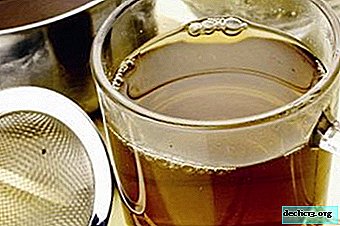 stomatitis;
stomatitis;- angina;
- neurodermatitis;
- eczema.
Cooking:
- 1 tablespoon of grass pour 1 cup boiling water.
- Insist for an hour.
- Strain.
Rinse Application:
- Take a third glass of infusion.
- Rinse your mouth 4 times a day 30 minutes before meals.
Application for lotions:
- Place a compress on the affected area.
- Keep for 40 minutes.
Oil
Indications:
- spasms of blood vessels;
- hematomas;
- bruises.
Application:
- Apply a few drops of oil to the affected area.
- Rub.
The procedure may be accompanied by a feeling of warmth and a slight indication.
Attention! Verbena treatment in most cases needs to be combined with other, more powerful drugs.Verbena is used in cosmetology. It is useful to add oil to creams, lotions and shampoos. With the help of infusions and decoctions, you can rinse the strands or wipe the skin.
You can also find out about the benefits of verbena essential oil in the video:
Hair products
Verbena oil is suitable for oily type curls. The tool is recommended to be used in the following ways:
- Enrichment of shampoo: add 3-4 drops per 5 ml of shampoo.
- As a conditioner: add a few drops of verbena oil to a liter of warm boiled water. Rinse your hair immediately until the oil has turned into balls.
- Aroma combing. Apply 3 drops of ether to the scallop with rare teeth. Slowly hold on curls for 5-10 minutes.
- Preparation of masks: 5 drops of the product for 3-4 tablespoons of any base oil.
Anti dandruff mask
Ingredients:
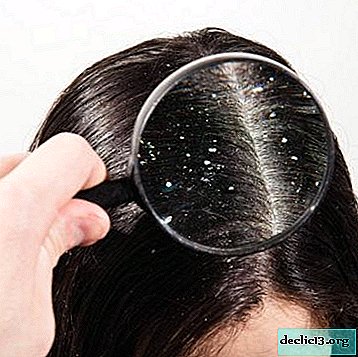 verbena oil - 4 drops;
verbena oil - 4 drops;- castor oil - 2 tablespoons;
- aloe oil - 1 teaspoon;
- natural honey - 1 teaspoon.
Cooking:
- Melt the honey in a water bath.
- Mix all components until a homogeneous consistency is obtained.
Application:
- Rub the composition into the scalp and basal area for 10 minutes.
- Wear a shower cap or plastic bag.
- Wait an hour.
- Wash off with warm water using shampoo.
Perform the procedure once a week for one month. If necessary, repeat the course after 30 days.
Composition for hair care
- Pour 3 tablespoons of raw materials 0.5 liters of boiling water.
- Boil for 5 minutes.
- Leave for an hour.
Apply warm. You can add decoctions of other plants.
Contraindications
The plant can bring not only benefits but also harm, therefore, before deciding on the application, pay attention to contraindications! It is not recommended to treat with verbena drugs in the following cases:
- individual intolerance;
- children under 14 years old;
- pregnancy;
- hypertension.
Contraindication to the use of verbena for cosmetic purposes is individual intolerance., manifested in the form of an allergic reaction.
Among the many types of verbena, the most valuable for human health are medicinal and lemon verbena. These plants also have beneficial effects on the hair and scalp. Verbena-based products are fairly simple to prepare and use at home.

 Verbenamine. It has anti-inflammatory, anti-allergic, antipyretic, antispasmodic and wound healing effects.
Verbenamine. It has anti-inflammatory, anti-allergic, antipyretic, antispasmodic and wound healing effects. a cold
a cold gastritis, accompanied by a reduced content of gastric juice;
gastritis, accompanied by a reduced content of gastric juice; atherosclerosis;
atherosclerosis; headache;
headache; rheumatism;
rheumatism; urolithiasis disease;
urolithiasis disease; cold;
cold; wounds;
wounds; stomatitis;
stomatitis; verbena oil - 4 drops;
verbena oil - 4 drops;